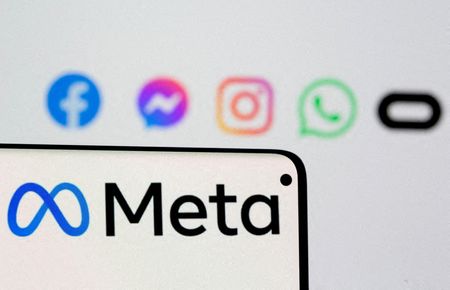WASHINGTON (Reuters) – Lawyers for Meta, which owns Facebook, Instagram and WhatsApp, and the U.S. government tangled on Tuesday over the U.S. Federal Trade Commission’s plan to toughen a 2019 privacy order.
In May, the FTC accused Meta of misleading parents about how much control they had over who their children had contact with in the Messenger Kids app, among other issues, and proposed tightening an existing agreement on privacy to include a ban on making money from minors’ data.
Speaking for Meta on Tuesday, James Rouhandeh argued that Judge Timothy Kelly of the U.S. District Court for the District of Columbia had jurisdiction to take the case and should scrap the FTC’s proposal because Meta had not agreed to it.
“They (the FTC) do need consent to modify. Because this is a contract, they need consent to modify (it),” he said.
Arguing for the FTC, Zachary Cowan of the Justice Department said that it was the agency’s decision on whether its settlements should be changed and the district court had no jurisdiction.
Kelly, who said he was “skeptical” of Meta’s jurisdiction arguments, said he would most likely rule before Nov. 30.
Essentially, the fight is whether Meta and the FTC, if they fail to settle, will go to district court or an FTC judge to decide if the 2019 agreement will be modified.
The FTC’s proposed changes include barring Facebook from making money off data collected on users under age 18, including in its virtual reality business. It would also face expanded limitations on using facial recognition technology.
Meta relies on digital ads targeted using personal data for more than 98% of its revenue. Meta is battling short video app TikTok for young users’ attention.
The FTC has twice before settled with Facebook over privacy violations.
The first was in 2012. Facebook agreed in 2019 to pay a record $5 billion fine to resolve allegations it had violated the 2012 consent order by misleading users about how much control they had over their personal data. That order was finalized in 2020.
The agency also asked a federal court in 2020 to order Facebook to sell Instagram, which it bought for $1 billion in 2012, and WhatsApp, which it bought for $19 billion in 2014. The case has not yet gone to trial.
(Reporting by Diane Bartz; Editing by Marguerita Choy)

